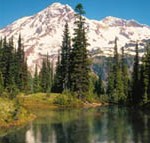Search Results
-
Parking Paradigm Shift?
Editor’s note: This post was contributed by Todd Litman, author of “Parking Management Best Practices,” and founder and executive director of the Victoria Transport Policy Institute. For more information see his free summary report (pdf), Parking Management: Strategies, Evaluation and Planning. A great example of the maxim “no free lunch” is the common struggle over parking. Motorists often assume that parking should be abundant and free at nearly every...Read more » -
One Mile from Home
2007 update: Inspired in part by this post, a Sightline friend/tech whiz created Walk Score, an online tool to explore and score your neighborhood’s walkability. Check your score and comment on it ! Last week, I displayed the wreckage of our 1986 stationwagon; this week, its replacement: our 1996 Burley stroller/bike trailer. (It’s Cascadia-made in Eugene, Oregon.) The kids have long-since outgrown the thing. But since we decided to experiment...Read more » -
Tidepool Editor's Pick: Comeback for the Klamath?
Three strong and informative pieces on Oregon’s battered Klamath River ran in Sunday’s papers. All of them, especially an article in the Washington Post, are worth reading. Both the Oregonian and the San Francisco Chronicle frame their stories around the economic impacts of the Klamath situation: How the depleted and polluted river—which the Chronicle says may be the West Coast’s sickest—has offered up a record low of chinook this year,...Read more » -
Last Stop in the Free Ride Zone
The market for electronics just got a little fairer. Starting January 2009, my fellow Washington residents will no longer be unfairly punished for my penchant for electoxics (you know—toxic electronics—like it?). That’s because the Washington State legislature just passed the most advanced producer responsibility law in the United States – ESSB 6428—the Electronic Waste Recycling bill. The bill basically says, “You can make and sell toxic electronic products, and you...Read more » -
Rails to Trails to Economic Development?
Editor’s note: Guest contributor Hans Peter Meyer writes on community development issues from Courtenay, British Columbia. I have a dream, and last year’s “official opening” of the One Spot Trail here in the Vancouver Island’s Comox Valley is part of its realization. The “developed” part of the trail is about 6 kilometres long. It’s a multi-use trail for walkers, cyclists, and horseback riding that parallels Condensory Road for part of...Read more » -
Wolf Millennium
New wolf numbers released this afternoon from US Fish and Wildlife: Idaho, Montana, and Wyoming now host an estimated 1,020 wolves, a stunning 21 percent increase in just a single year. Since reintroduction in the mid-1990s, gray wolf numbers have grown at an astonishing pace, faster even than the most optimistic prognostications. Idaho continues to shelter more wolves than any other state in the West with about half the total....Read more » -
PBDEs and PCBs in the Northwest – Regional Data Sheet
2007 update: Washington State legislature passed the nation’s strongest ban on PBDEs in 2007, focusing on deca-PBDEs. In 2004 and 2005, Sightline Institute released studies on chemicals in the breastmilk of northwest women. The 2004 study looked at 40 mothers from British Columbia, Montana, Oregon, and Washington. Those samples were analyzed by the California EPA Hazardous Materials Laboratory for the presence of PBDEs (polybrominated diphenyl ethers), toxic compounds widely used...Read more » -
Shocker: Global Warming Bad For Skiing
A new study from researchers at Oregon State University, showing that warming trends are likely to have significant effects on snowpack. (Good articles in the Seattle Times and the Oregonian.) The Northwest’s coastal mountains are especially sensitive to climate change because temperatures frequently hover near freezing—so even slight warming can drastically reduce the amount of snow that accumulates. (For localized details, click on the image at right, from the Seattle...Read more » -
Expand Roadless Areas
A key way to protect the region’s intact landscapes is to expand roadless areas.Read more » -
Make Emergency Contraception Widely Available
The Northwest can curb unintended pregnancies by ensuring easy access to emergency contraceptive pills such as Plan B.Read more »


